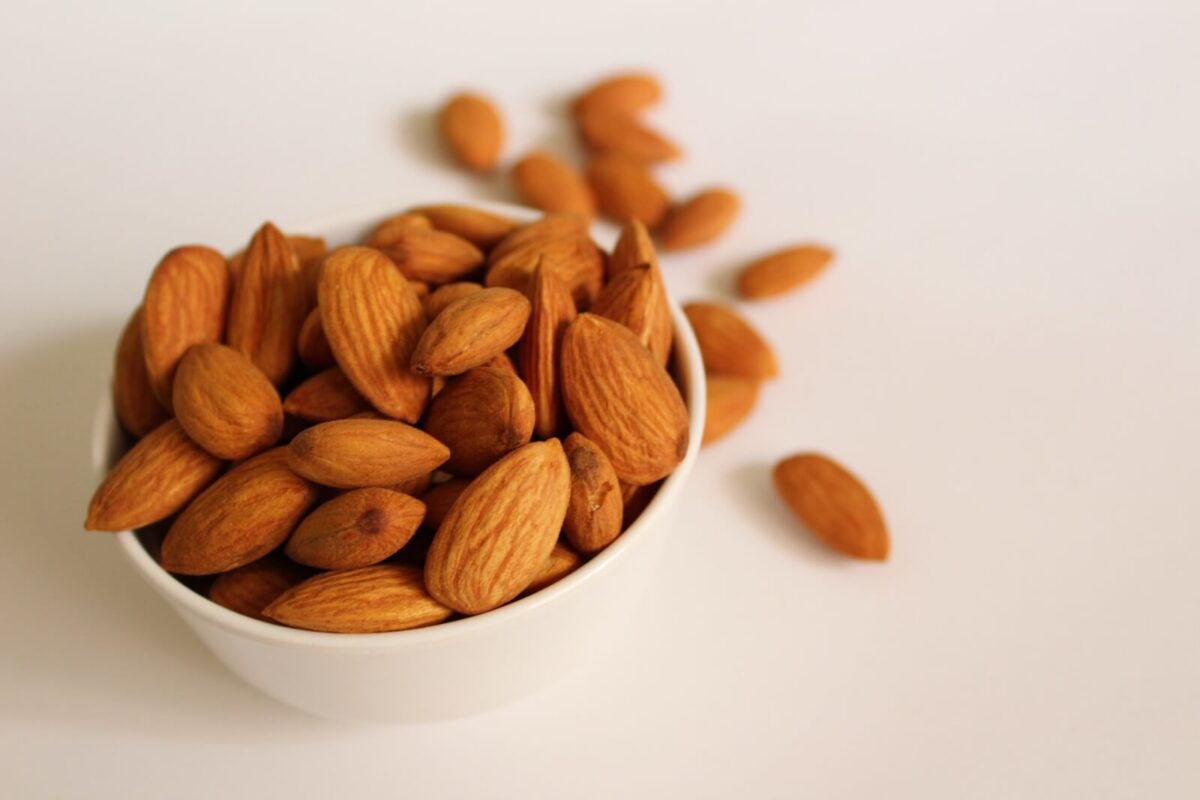Can Vitamin E Help with Weight Loss

When we think about weight loss, we usually think about diets, exercise regimens, and lifestyle changes.
But what about dietary supplements?
Is there an association between vitamin E supplementation and weight loss?
Do you need to supplement with vitamin E or can you get enough from a healthy diet?
Could supplementing with vitamin E hold the key to helping you shed those extra pounds?
In this article, we’ll answer these questions and more about the properties of vitamin E and how they may play a role in weight loss.
What is Vitamin E?
Vitamin E is a fat-soluble vitamin with antioxidant properties.
Like other antioxidative nutrients, vitamin E plays a crucial role in breaking down free radicals, which are tiny chemicals that damage cells.
Free radicals cause oxidative stress and are linked to a number of health conditions.
Vitamin E specializes in protecting a specific type of fat cell known as lipids. While protecting fat may sound like a quandary when it comes to successful weight loss, vitamin E is one of the most important anti-oxidative vitamins and can only be obtained through diet.
You need vitamin E in order to live.
Vitamin E Benefits: How Vitamin E Helps with Weight Loss
Although vitamin E does not have a direct link to a healthy weight, it does have properties that aid in weight loss and overall health. These benefits of vitamin E include:
Improves Insulin Sensitivity
An improved insulin sensitivity helps your body’s metabolism and also can help reduce the risk of developing type 2 diabetes.
Reduces Inflammation
Due to its role in immune function, vitamin E helps prevent inflammation, which can make physical activity more difficult and even painful.
Reduces Risk of Heart Disease and Cancer
Vitamin E may reduce the risk of heart disease and lower the risk of prostate cancer in men. Both of these diseases are caused by excessive free radicals, which vitamin E breaks down.
Concerned about health risks due to weight? Sign up to get our 5 Weight Loss Tips and 5-day email course, free.
Foods with High Vitamin E Levels
Foods rich in vitamin E include:
- Abalone
- Almonds
- Avocados
- Hazelnuts
- Kiwis
- Mangos
- Peanuts
- Pine nuts
- Salmon
- Sunflower seeds
- Trout
Taking Vitamin E for Weight Loss: How Much Vitamin E Do I Need?
The recommended dietary allowance of vitamin E for most adults is 15 milligrams per day, and a balanced diet can
A recent study at Oregon State University found that people who are overweight or obese do not get enough vitamin E because they need increased levels of vitamin E.
To meet their increased daily vitamin E intake requirements, people with obesity may need to supplement vitamin E.
Getting less vitamin E than you need can result in adverse effects and health conditions:
- Arthritis
- Diabetes
- Heart disease
- High blood pressure
- High cholesterol levels
- Metabolic syndrome
- Prostate cancer
As always, be sure to have a physician test you for vitamin E deficiency.
Conclusion
Overall, evidence suggests that vitamin E may offer some benefits in your quest for a healthier weight but even more importantly, living a long, healthy life.
However, consult with a healthcare professional before making significant changes to your diet or supplement regimen.
Lifelong Metabolic Center’s approach to weight loss has helped overweight and obese patients successfully lose weight and keep it off for life.
Our convenient, science-backed, doctor-supervised weight loss program can be done from anywhere and includes:
- DNA testing
- Nutritional counseling
- Natural supplements — no drugs, no shots, no hormones
- Frequent check-ins with a supportive healthcare professional


